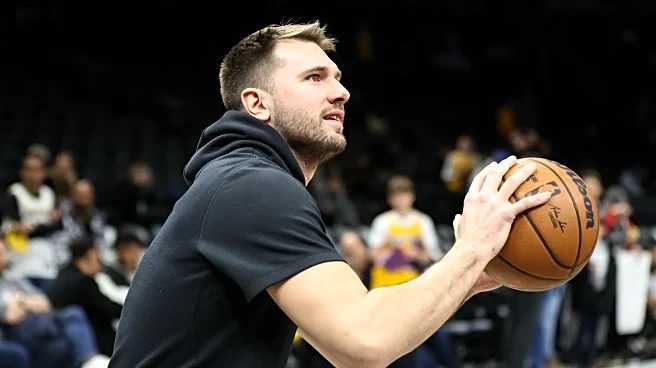What's Happening?
Deion Sanders, head coach of the Colorado Buffaloes, has demoted Pat Shurmur from his role as offensive coordinator to quarterbacks coach following a series of disappointing performances. Shurmur, who previously served as head coach for the New York Giants,
was relieved of his play-calling duties after a significant 53-7 loss to Utah. Brett Bartolone, the team's passing game coordinator and tight ends coach, has taken over play-calling responsibilities. The Buffaloes are currently 3-6 for the season, a stark contrast to their 9-4 record last year, and are positioned 14th in the Big 12 conference with a 1-5 record in conference play. Sanders has also restricted media access to his players following consecutive blowout losses.
Why It's Important?
The demotion of Pat Shurmur highlights the challenges faced by the Colorado Buffaloes under Deion Sanders' leadership this season. The team's performance has implications for Sanders' coaching strategy and the overall morale of the team. With the Buffaloes struggling in the Big 12 conference, the changes in coaching roles could impact their ability to recover in the remaining games. This situation also reflects the pressures and expectations in college football, where coaching decisions can significantly affect team dynamics and performance.
What's Next?
The Colorado Buffaloes have three games remaining against West Virginia, Arizona State, and Kansas State. These games will be crucial for the team to improve their standing and potentially salvage the season. The effectiveness of Brett Bartolone's play-calling will be closely watched, as will Sanders' ability to motivate and lead the team through this challenging period. The outcomes of these games could influence future coaching decisions and the team's strategy moving forward.
Beyond the Headlines
The demotion of Pat Shurmur may have deeper implications for his career and the coaching staff dynamics at Colorado. It raises questions about the stability and decision-making processes within the team. Additionally, the restriction of media access to players suggests a focus on internal team cohesion and protection from external pressures, which could affect player development and public perception.

















